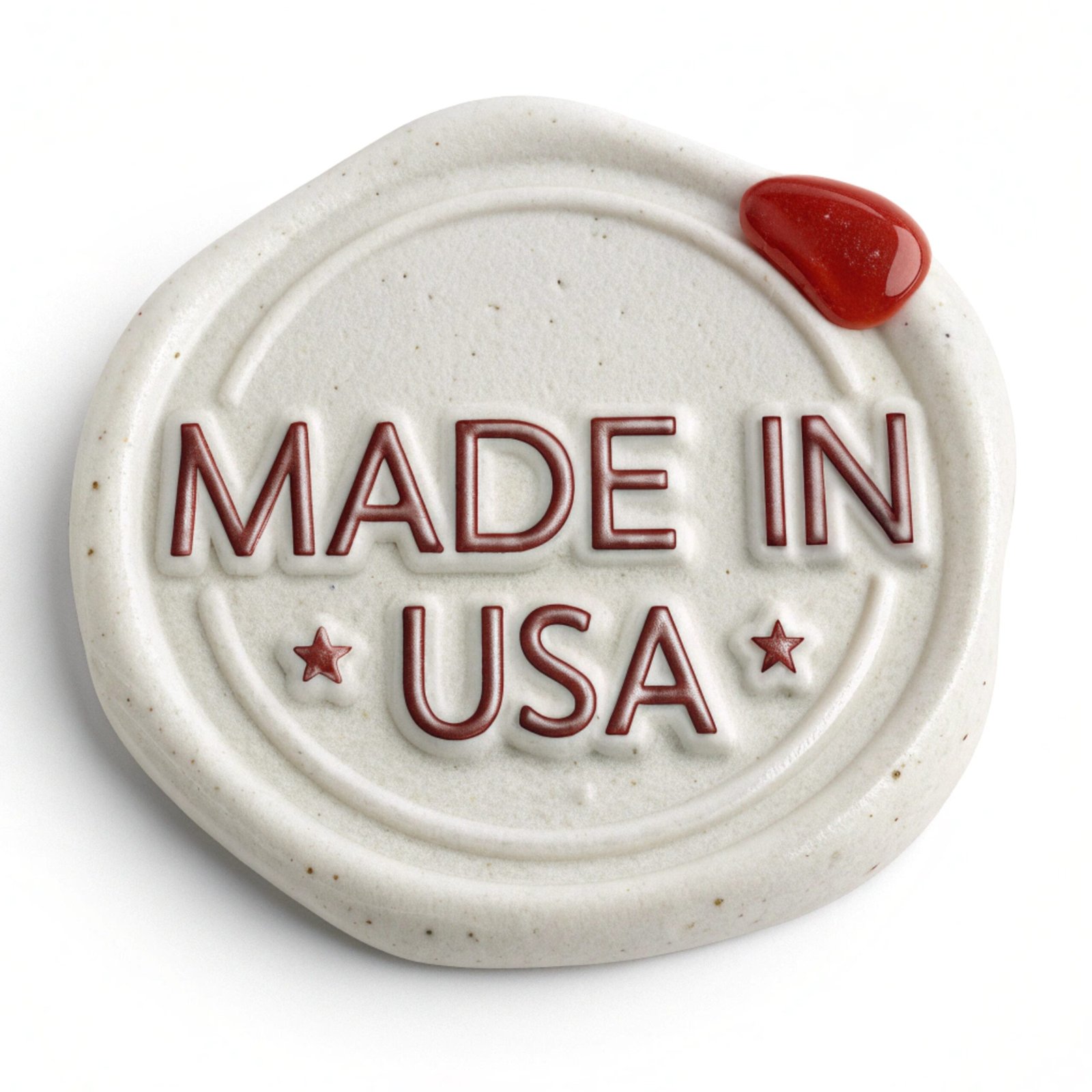Introduction
Across the United States, a quiet yet powerful movement is reshaping how people choose the products they use daily. Beyond aesthetics and function, there is a growing emphasis on where products come from and who makes them. “Made in USA” has evolved from a simple label into a symbol of quality, sustainability, and support for local communities. Choosing American-made goods is not only an investment in superior craftsmanship but also a vote for economic growth, job creation, and the preservation of traditional skills. This article explores why supporting local artisans and small businesses matters, how American craftsmanship has maintained its value over time, and the broader impact of this conscious choice.
1. The Meaning Behind the “Made in USA” Label

When a product bears the “Made in USA” label, it represents more than just its origin. It signifies that the item was manufactured with high standards, ethical labor practices, and a commitment to maintaining domestic industries. For small businesses, this label serves as a badge of pride, reinforcing the value of homegrown talent and the dedication to producing goods that meet and often exceed global standards.
2. Preserving Traditional Craftsmanship

America has a rich history of artisanal skills, from leatherworking and metal fabrication to textile weaving and woodworking. While mass production dominates global markets, many small businesses across the nation are preserving age-old techniques passed down through generations.
Examples include:
-
Handcrafted leather goods from small tanneries in the Midwest.
-
Custom furniture makers in North Carolina blending modern design with traditional woodworking.
-
Locally produced textiles from New England mills, continuing America’s heritage in fabric production.
Supporting these businesses ensures that these crafts not only survive but thrive, keeping heritage alive while adapting to modern demands.
3. Boosting Local Economies

Every dollar spent on American-made goods directly contributes to the national economy. According to economic studies, small businesses account for nearly 44% of U.S. economic activity and create two-thirds of new jobs in the private sector. By choosing products from these enterprises, consumers play an active role in supporting livelihoods and enabling local communities to flourish.
Key benefits include:
-
Job creation: Skilled artisans, factory workers, and support staff rely on steady demand.
-
Community reinvestment: Small businesses are more likely to reinvest in their local areas compared to large multinational corporations.
-
Economic resilience: Strong domestic production helps stabilize the economy during global disruptions.
4. Sustainability Through Local Production

Supporting local businesses also means lowering the environmental impact of products. Domestic manufacturing reduces the carbon footprint associated with long-distance shipping and overseas production. Additionally, many American small businesses embrace eco-friendly practices, such as:
-
Using recycled or renewable materials.
-
Employing energy-efficient production methods.
-
Reducing packaging waste and encouraging circular product lifecycles.
This commitment to sustainability aligns with growing consumer awareness about climate change and environmental responsibility.
5. Empowering Small Businesses and Entrepreneurs

Small businesses are often the heart of innovation. Without the constraints of large-scale operations, they can experiment with new materials, unique designs, and customer-focused solutions. Choosing their products means supporting creativity and entrepreneurship, ensuring these enterprises continue to grow and inspire future generations.
Many small American brands started from humble beginnings—garages, small workshops, or family-owned farms—and have built reputations through hard work and dedication to quality. Every item they create tells a story of perseverance, skill, and passion.
6. Building a Stronger Sense of Community

When customers choose products made by local artisans or family-run businesses, they contribute to something much bigger than a simple exchange. They become part of a community-driven movement that values authenticity, human connection, and shared purpose.
-
Local businesses often sponsor community events, charities, and youth programs.
-
Artisans take pride in meeting customers face-to-face at local markets or through personalized online experiences.
-
These interactions foster a sense of belonging and trust that mass-produced products cannot replicate.
7. Cultural Identity and Heritage

American-made products often carry a cultural narrative, reflecting regional traditions and lifestyles. For example:
-
Western leather boots represent the spirit of the American frontier.
-
Handmade quilts symbolize the artistry of rural communities and generations of craftsmanship.
-
Craft breweries and distilleries showcase local flavors and historical brewing practices.
By supporting these goods, customers help preserve not only businesses but also the stories and heritage that define American culture.
8. The Economic Ripple Effect

One purchase from a small American business can trigger a ripple effect across multiple industries. Consider a handcrafted wooden table:
-
The lumber may come from a sustainably managed U.S. forest.
-
Hardware suppliers provide screws and fittings sourced from local metalworkers.
-
Packaging is created by a domestic printing company.
-
Shipping services employ local drivers and logistics experts.
This interconnected network of American enterprises thrives when customers prioritize domestically made products.
9. How Consumers Can Support Local Craftsmanship

Supporting American craftsmanship doesn’t always require major lifestyle changes. Here are practical ways to make a difference:
-
Look for “Made in USA” labels and research brands committed to domestic production.
-
Support small businesses directly through their websites or at local artisan markets.
-
Share experiences online, highlighting the quality and story behind American-made goods.
-
Educate others on the value of local craftsmanship and why it benefits communities.
Every conscious choice contributes to a broader movement of sustaining local economies and preserving skills that define the American spirit.
Conclusion
Supporting “Made in USA” products is more than a shopping decision—it’s an investment in quality, tradition, and community. It helps artisans preserve time-honored techniques, empowers small businesses to grow, and strengthens local economies. Most importantly, it allows customers to take part in a movement that values craftsmanship, sustainability, and the cultural identity of the United States.